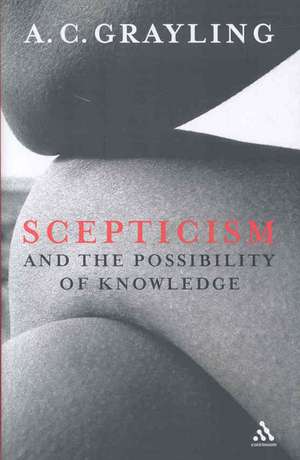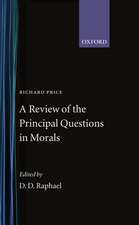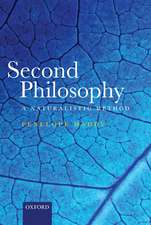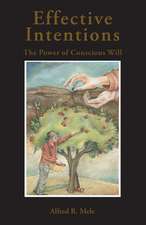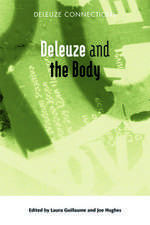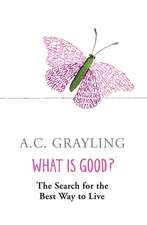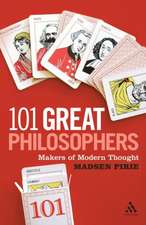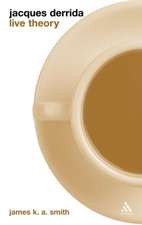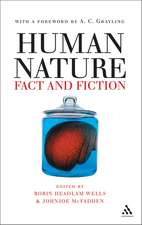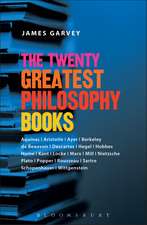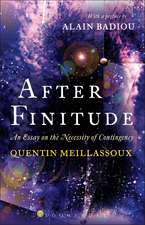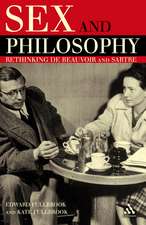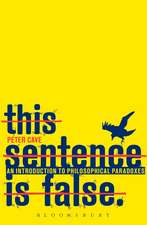Scepticism and the Possibility of Knowledge
Autor Professor A. C. Graylingen Limba Engleză Hardback – 4 ian 2008
| Toate formatele și edițiile | Preț | Express |
|---|---|---|
| Paperback (1) | 107.21 lei 43-57 zile | |
| Bloomsbury Publishing – 25 noi 2009 | 107.21 lei 43-57 zile | |
| Hardback (1) | 249.17 lei 43-57 zile | |
| Bloomsbury Publishing – 4 ian 2008 | 249.17 lei 43-57 zile |
Preț: 249.17 lei
Preț vechi: 386.40 lei
-36% Nou
Puncte Express: 374
Preț estimativ în valută:
47.68€ • 49.91$ • 39.68£
47.68€ • 49.91$ • 39.68£
Carte tipărită la comandă
Livrare economică 31 martie-14 aprilie
Preluare comenzi: 021 569.72.76
Specificații
ISBN-13: 9781847061737
ISBN-10: 1847061737
Pagini: 224
Dimensiuni: 138 x 216 x 23 mm
Greutate: 0.41 kg
Editura: Bloomsbury Publishing
Colecția Continuum
Locul publicării:London, United Kingdom
ISBN-10: 1847061737
Pagini: 224
Dimensiuni: 138 x 216 x 23 mm
Greutate: 0.41 kg
Editura: Bloomsbury Publishing
Colecția Continuum
Locul publicării:London, United Kingdom
Caracteristici
Grayling is the foremost philosopher and commentator regularly invited onto radio and television programmes to voice his opinion on current issues.
Cuprins
IntroductionAcnowledgementsPart I CARTESIAN RESPONSESi. Berkeley's Immaterialismii Russell, Experience, and the Roots of Science.iii Russell's Transcendental Argument in An Essay on the Foundations of Geometry Part II VARIETIES OF NATURALISMi. Wittgenstein On Certaintyii. Quine's Naturalistic AssumptionsPart III SCEPTICISM AND JUSTIFICATION
Recenzii
"Grayling (philosophy, Birkbeck Coll., Univ. of London) sets himself the goal of refuting-or at least of attempting to refute-the philosophical doctrine that absolute knowledge is impossible. To do so, he considers two sets of arguments from major antiskeptical philosophers-Berkeley and Russell in one tradition and Quine and Wittgenstein in another-and argues that the strategies the aforementioned philosophers used to accomplish their goals are "not so much incorrect as incomplete." He thereupon argues in extensive, closely reasoned, if often turgid detail, his own stratagem-which, he believes, "is the right one overall." Because of the fecundity of the argument, readers will have a difficult time deciding if he has succeeded. This is not a book for beginners in philosophy: it deals with an issue most philosophers consider the central one in philosophy and requires extensive familiarity with the discipline, both current and historical. Recommended for academic collections."-Leon H. Brody, Falls Church, VA Library Journal
Descriere
Descriere de la o altă ediție sau format:
In seeking understanding of the human condition we need more than just a set of beliefs about it: all belief is irrational. We want to know or garner some kind of proof about the fundamental truths of human existence. This book illuminates this issue.
In seeking understanding of the human condition we need more than just a set of beliefs about it: all belief is irrational. We want to know or garner some kind of proof about the fundamental truths of human existence. This book illuminates this issue.
